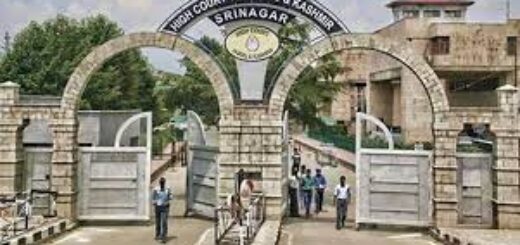The Supreme Court stated that the adequacy of consideration does not matter when making a presumption under Section 20 of the Prevention of Corruption Act.

The Supreme Court referenced section 20 of the Prevention of Corruption Act, stating that the adequacy of consideration does not matter when presuming guilt if a public servant accepts a bribe instead of legal payment. This statement was made while overturning an acquittal by the Karnataka High Court in a corruption case. The Court emphasized that once the ‘demand’ and ‘acceptance’ of the bribe are clearly established, there is no room for differing opinions. The State appealed to the Supreme Court after the Karnataka High Court cleared the accused of charges under Sections 7 and 13(1)(d) along with Section 13(2) of the Prevention of Corruption Act, 1984.
A Three-Judge Bench, including Chief Justice Sanjiv Khanna, Justice Sanjay Kumar, and Justice R. Mahadevan, concluded that it is clear the respondent willingly accepted the bribe. The testimonies from witnesses P.W.1 to P.W.5, along with P.W.10 and P.W.12, demonstrated the demand, acceptance, and recovery of the bribe from the respondent, proving the charges beyond reasonable doubt.
AOR D. L. Chidananda represented the Appellant-State, while AOR Anirudh Sanganeria represented the Respondent. The case facts reveal that the complainant (PW-1), a Second Division Assistant at a High School, reported that the respondent, a First Division Assistant at the Sub Treasury, demanded an illegal payment of Rs 2,000 to process a bill for Rs 43,323 related to the complainant and three non-teaching staff members. The complainant discovered that the respondent typically only approved bills after receiving a bribe and recorded their conversation.
The Bench noted that the prosecution received the necessary approval from both the disciplinary and competent authorities since the respondent is a Government Servant. After reviewing the oral and documentary evidence, the Bench found that the testimonies of the witnesses and Investigating Officers fully supported the prosecution’s claims regarding the ‘demand’ and ‘acceptance’ of the bribe, as well as the recovery of the bribe money from the respondent. The Bench stated that it is established law that if the two key facts, ‘demand’ and ‘acceptance’ of a bribe, are proven, then under Section 20, it can be assumed that the bribe was demanded and accepted as a reward, as outlined in Section 7 of the Act. However, this assumption can be challenged. The accused can counter this presumption based on the balance of probabilities.
The prosecution successfully demonstrated beyond reasonable doubt the ‘demand’ and ‘acceptance’ of the bribe from the complainant, along with the recovery of the marked currency notes from the respondent. This operation was preceded by a recorded demand. However, the respondent did not successfully challenge the presumption by disproving the prosecution’s case during cross-examination or by providing evidence that the Rs. 2,000 received was not a bribe, but rather a legal fee or repayment.
In this case, the evidence shows that the respondent received a bribe. The respondent’s explanation lacks solid proof and is therefore not credible. It can be concluded that the respondent willingly accepted the money. Testimonies from witnesses P.W.1 to P.W.5, along with P.W.10 and P.W.12, support the claims of demand, acceptance, and recovery of the bribe from the respondent. The prosecution has successfully established the charges against the respondent beyond a reasonable doubt.
The Bench noted that the accused is a Government Servant and referred to Section 20. This section applies when it is shown that a public servant has accepted or agreed to accept a bribe that is not legal payment. In such cases, it is assumed that the bribe is a motive for actions under Sections 7, 11, or 13(1)(b) of the Act. It was also stated that Section 20 is relevant only when there is no connection between the demand and the action taken or intended. However, if it is proven that the payment was received or there was an agreement to accept a bribe, then there is a clear connection, making the presumption irrelevant.
The assumption in Section 20 is like that in Section 118 of the Negotiable Instruments Act, 1881, where the accused must prove their innocence regarding the charges. The first two parts of subsections (1) and (2) of Section 13 clarify that the adequacy of consideration does not affect the presumption. Additionally, subsection (3) gives the Court the option to not draw a presumption if the amount involved is so small that it does not reasonably suggest corruption in the case. This is not a standard rule but an exception that the Court can choose to apply based on the specific facts of the case. In this situation, we do not wish to use that discretion. Therefore, the High Court’s decision to acquit is deemed illegal, incorrect, and not supported by the evidence. The Bench stated that since the elements of ‘demand’ and ‘acceptance’ of the bribe have been clearly established, there is no room for different interpretations. Thus, the High Court’s reasoning is flawed and needs to be corrected. Consequently, the Bench allowed the appeal and instructed the trial Court to take action to ensure the respondent is imprisoned for the remainder of their sentence and to collect the imposed fine.
Cause Title: The State of Karnataka v. Chandrasha [Neutral Citation: 2024 INSC 899]
Appearance:
Appellant: AOR D. L. Chidananda
Respondent: AOR Anirudh Sanganeria









